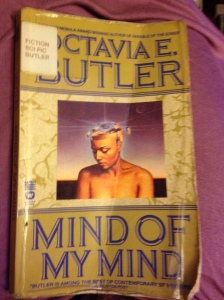I remember George G. M. James’ Stolen Legacy from my father’s bookshelf when I was young, but it was one of the few books lying around our house that I didn’t bother to read. This weekend I found it at a flea market. I think it’s one of those black cult classics that people who were “woke” long before that word died a shameful death of mis- and over-use in 2017 would keep around to demonstrate their commitment to the cause, whether they wore a suit and tie or overalls to work. As far as I know it doesn’t hold much weight with the academic establishment. That’s too bad, because it makes a very cogent and well-cited case for the origins of classical Greek thought in the ancient Egyptian Mystery System and its author is credentialed by some of the West’s most respected institutions of higher learning. James reduces the giant Aristotle, who I’ve heard some claim as the last man who knew everything there was to know in his time, to a plagiarist and a plunderer. That proposition is difficult to accept in its entirety, but worth entertaining. The author also raises the intriguing point that one of the reasons those who came to call themselves “lovers of wisdom” were so persecuted in the Athens of Socrates’ day was that they were spreading a foreign doctrine, ideas that the early Greek philosophers had learned at the feet of hierophants during extensive exile in Egypt.
I haven’t read Martin Bernal’s Black Athena, which is nothing to brag about. Not all of it anyway; we might have been assigned some chapters in undergrad but my lack of recall is also nothing to brag about. My Spelman professors would shame me to the grave for that. Stolen Legacy came out some thirty years before Bernal’s work. It might have been too ahead of its time to be taken seriously in a discipline where white supremacy has so firmly taken root somewhere in history that even after a black man has occupied the White House, journals at its vanguard feel entitled to explain resistance movements that rise out the black community without including black voices. I was one of those who were missing out on it. Ironically for all I’ve invested in chasing those pieces of paper called degrees, I come late to the game of reading philosophy for fun, without the guiding hand of a professor to help work out its kinks. Its study in the halls of the academy attracted me because I wanted to be wise, wiser than I could ever be without learning from people who could outthink me, not only on the page but in the classroom. As result of this reverence for those who could unlock the text for me—and also as a result of pure exhaustion in the wake of personal traumas that nearly took me under—there have been stretches of time, longer than I’d like, where if it didn’t get assigned to me it didn’t get read.
***
Authorship wasn’t always a thing. Stolen Legacy is a reminder of that. For thousands of years people attributed the words that they marked on clay tablets and on stone temple walls to forces that came from beyond them: muses, spirits, gods. The rulers stuck their names on everything and built monuments to themselves, sure. But not the sages, unless they were also political leaders like Ptahhotep. It even took a while for the Greeks to catch on to the trick of signing your name after something you’d written. Socrates famously didn’t write, and George G. M. James draws on Plato to indicate that Socrates believed himself to be guided by a divine voice, his private daimon. The pre-Socratics were practically mythological, with the fuzziest bios reconstructed from oral tradition well past their times. But somewhere along the line people got the idea that they were responsible for the words that had come to them. The rest is, literally, history.
I wonder if it is the insight that our ideas belong to us—not to the king, not to the god—that was the real revolution that provided the foundation for the Western attempt to reroute the narratives of intellectual history in its own interests; if you can stamp your seal on your own work, you can stamp it on somebody else’s so long as they don’t defend themselves and perhaps even then. There’s some dangerous racism implicit in even the claim that a concept as fundamental to the modern experience as authorship belongs to Europe. That’s not exactly a road I wish to go down, and I’m sure if we looked we’d find evidence that the idea of the author originated further south or east anyway. At any rate it’s possibly way too “meta” to search for the authors of authorship, and I for one would never deny having written this blog or anything else I poured my efforts into in a world where to do so could take food off of my table. So there’s more to think about there. I choose to believe there’s time, too.

